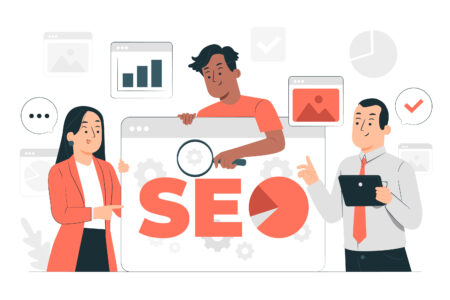5 minutes read

Time and again, Google has emphasised the importance of following sound, ethical efforts to improve website rankings. It has repeatedly provided guidelines on earning online authority and boosting exposure – all in line with providing web users with a better search experience.
It is all fairly simple: those who follow the guidelines get rewarded with better rankings and more exposure. Those who do not, on the other hand, are penalised.
But how do you know if your website has been affected negatively by a Google penalty?
Identifying a Google Penalty and its effects
Google penalties often manifest in either one of two ways: 1.) You have lost significant rankings for keywords you have been targeting and performing for in your online marketing campaign; 2.) Traffic to your website has dropped alarmingly over a considerably short period.
Per Google, there are two types of penalties that can act on a website: algorithmic penalties and manual penalties. An algorithmic penalty takes place when one of Google’s core algorithms detects an anomaly while crawling a website, while a manual penalty occurs when a human reviewer from Google determines that pages within a site are not compliant with search engine guidelines.
A search penalty can have a dramatic effect on a business, since majority of consumers use Google nowadays for research and purchasing purposes. To have a better idea of how a Google penalty can impact business bottom line, one need only look at eBay, which was hit by one such penalty in 2014 due to search algorithm changes.
In the case of the e-commerce company, the penalty resulted in a 50 per cent drop in search visibility. For a business model that relies heavily on online visibility to reach customers, this was a massive hit, with a direct impact on its general ledger. Reports indicate this likely led to the loss of approximately $200 million in revenue, mostly from new buyer traffic.
Two Sure-fire Ways to Get Hit by a Penalty
Bad Quality Content
Poor content is always a recipe for disaster. Google has developed its algorithms to detect duplicate content, whenever it crawls a page. As such, webmasters should never resort to copying content from another online source to place on their sites. However, duplicate content is not the only type of content Google frowns upon.
When your pages have limited or no original content, you also run the risk of getting hit with a ‘thin content violation.’ This happens when Google detects a page that contains automatically-generated content or content scraped from other online sources.
To avoid this, make sure you have fresh, valuable, original content on your pages. Remember that Google appreciates creating content that has value and improves the user experience. After all, it is a search engine that is designed to help users find answers to their queries online.
Unnatural Linking
Google has always had an aggressive stance against practices that are aimed at manipulating search results, and one such practice is ‘blackhat linkbuilding.’ Practices such as using hidden links, link exchanges for solely for the purposes of linkbuilding, link buying, and using doorway pages can all incur search penalties.
Steer clear of these and ensure that you practice organic link building by building your authority through valuable content and spreading that across a variety of channels. When you create content that other people find valuable, they will naturally link back to your website, and these links are invaluable in the eyes of Google.
If you are unsure about whether your website has been hit by a penalty recently, get in touch with the SEO specialists at United SEO. We can conduct a full analysis of your website and create a bespoke online marketing strategy that safeguards against Google penalties. To find out more, contact us today.



 5 min read
5 min read



